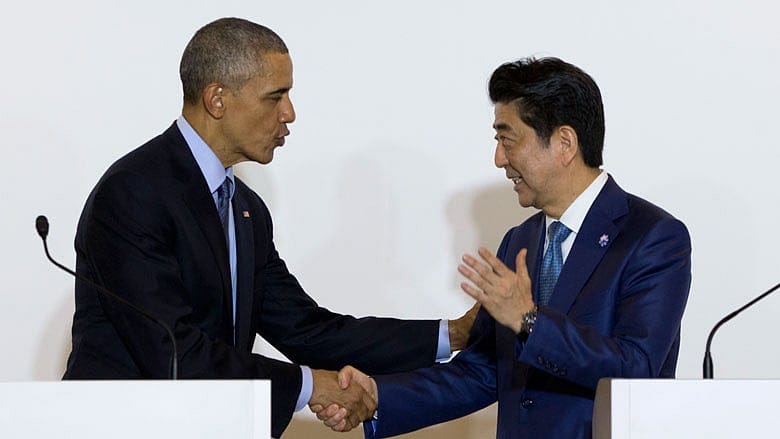Obama’s Japan visit starts with apology – although not for Hiroshima

(CNSNews.com) – President Obama has said he will not offer an apology when visiting Hiroshima this week, but his trip to Japan began on an awkward note and expressions of regret, after Japanese Prime Minister Shinzo Abe opened a press appearance by sternly lecturing him over a murder allegedly perpetrated by a former U.S. Marine on Okinawa.
Abe began his televised comments by saying the case in Okinawa had taken up "the entire time" of a small group discussion during his talks with Obama.

